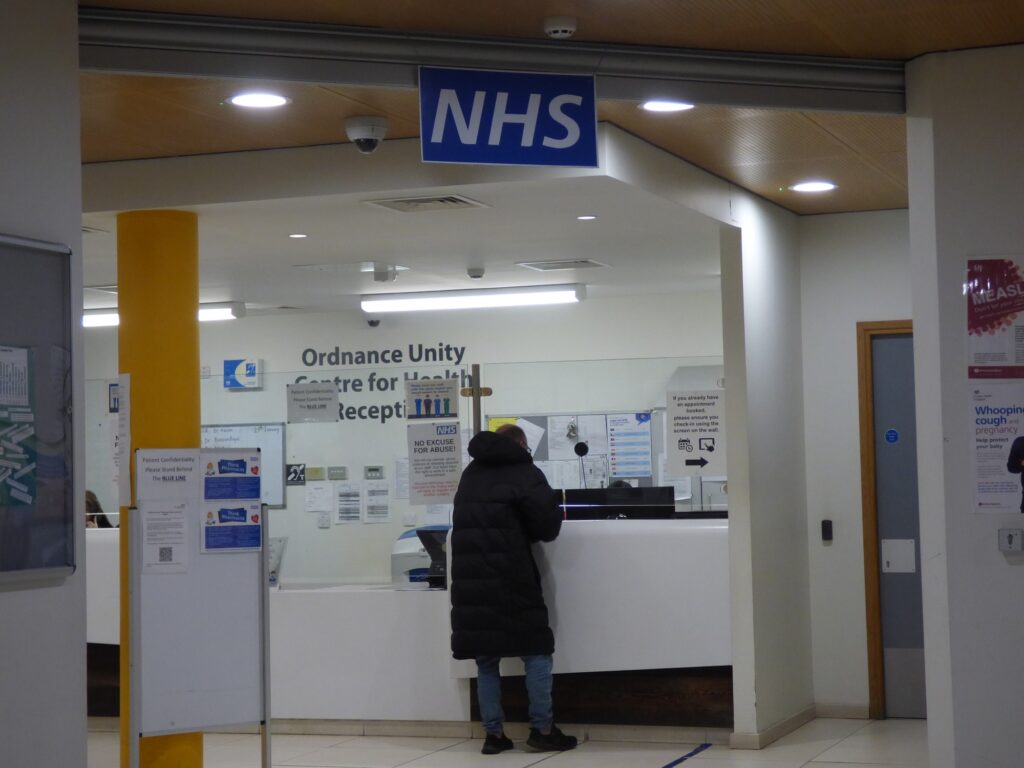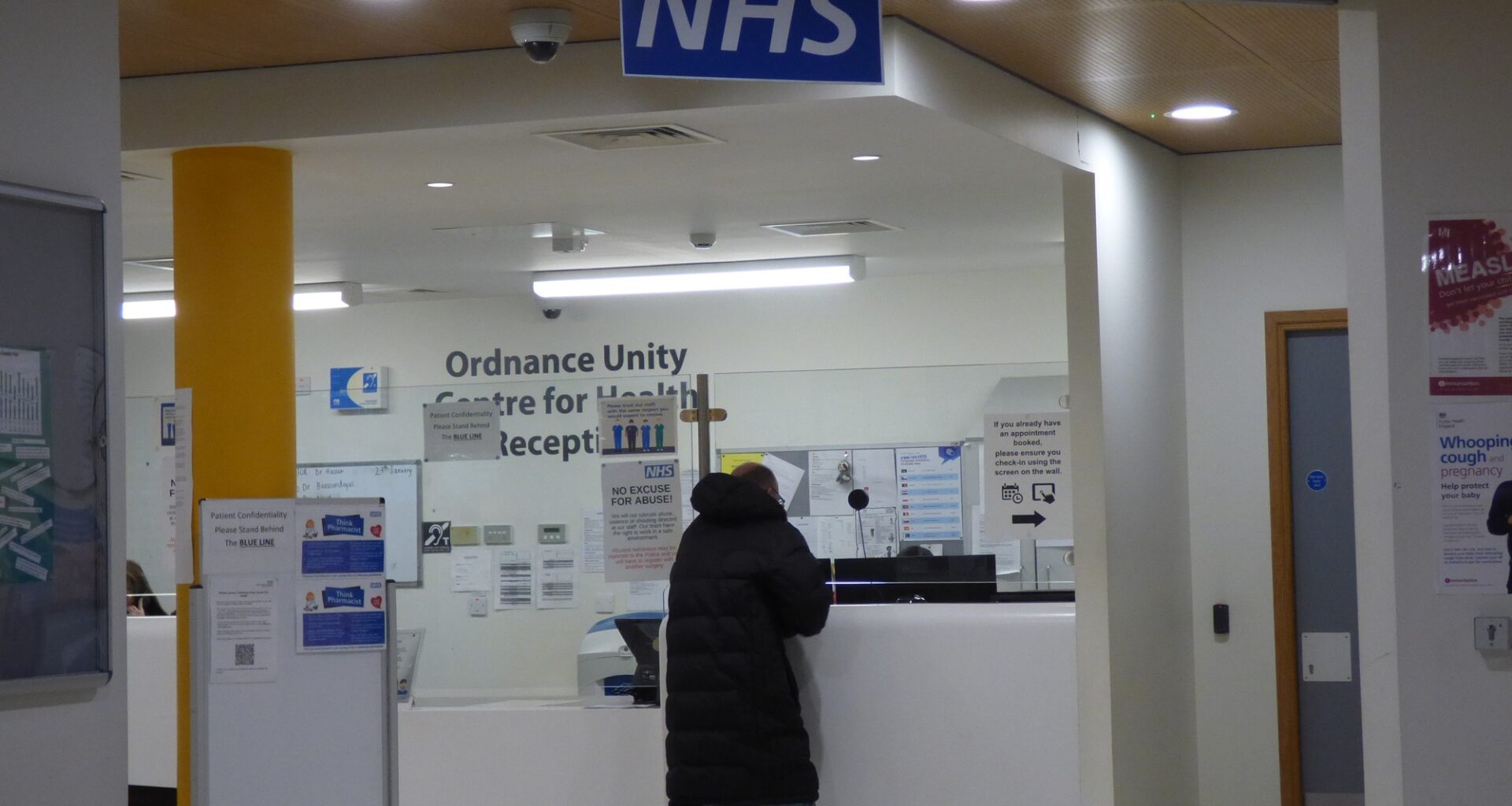The mammoth organisation would cover every borough from Enfield to Westminster in central London and Hillingdon in the west, reports Ben Lynch, Local Democracy Reporter
 A GP surgery in Enfield Lock
A GP surgery in Enfield Lock
Two NHS integrated care boards (ICBs) in North London have agreed to merge to form England’s largest – serving 4.5 million people.
North Central London (NCL) and North West London (NWL) ICBs, which plan and pay for NHS primary care services in the areas they cover, approved the merger in separate meetings held last week.
The NCL ICB was itself only created in 2022, replacing five former clinical commissioning groups (CCGs) which covered individual boroughs in North London. The CCG merger was opposed by late Enfield Over 50s Forum president Monty Meth for creating what he described as a “bureaucratic monster”.
Just three years later, the new ICB is now proposed to cover 13 local authorities, from Westminster in central London, to Hillingdon in the west and Enfield in the north-east.
Frances O’Callaghan, chief executive at NCL ICB, said the merger will create a “resilient and ambitious” group which can focus on key aims including reducing inequalities and improving access to health.
ICBs manage the NHS budget and work with providers, such as hospitals and GPs, to agree strategies for improving their population’s health and wellbeing. Earlier this year the government announced a raft of changes to the NHS including the publication of its Model ICB Blueprint in May.
The blueprint was intended to provide clarity over the roles of ICBs as ‘strategic commissioners’, focussing on things like long-term health strategies for the areas they cover.
The government’s changes also included a requirement for ICBs to reduce their running costs to a maximum of £19 per person within their population. For NWL and NCL this meant cuts of approximately 50%.
The two organisations have worked together over the last few months to draw up a list of options in an attempt to improve local services while reducing costs. A full merger of the two was decided to be the best option.
In papers published ahead of NCL’s board meeting on Tuesday, 22nd July, and NWL’s a day later, it stated the reasons for the two ICBs looking to merge included their financial positions, with both high-performing organisations, plus similarities across their populations.
“Like many areas of London, both NWL and NCL have stark health inequalities, an inner vs outer London dynamic, and populations that are more diverse and transient than the England average,” the paper presented to the NWL ICB read.
The report added that a significant percentage of residents in those two areas effectively used each other’s services anyway as the boundaries between the two are “porous”.
The vision, according to the report, includes improving outcomes for patients, retaining and attracting the best staff, and ensuring the ICB’s core services become more resilient and cost-effective. Councils and other stakeholders were spoken to as the different options were considered.
Some concerns were raised, including over the potential pace of change and the impact on staff morale.
The paper presented to the NWL board meeting made particular reference to “creating the right environment for staff and talent to thrive, so that the ICB becomes a high-performing strategic commissioner for its population”.
It continued: “The plan needs to proactively engage with partners. The approach needs to manage staff professionally and with compassion, building the new teams with the skills and talent to deliver our vision for our residents.”
Board members at the two meetings were largely supportive, but spoke of the need to ensure a positive culture is nurtured and staff morale is maintained.
Alex Sanderson, deputy leader of Hammersmith and Fulham Council, said at the NWL meeting she would back the recommendation but that there must be a credible plan to retain existing staff and warned against it becoming a “technocratic exercise in cost-cutting”.
Rob Hurd, chief executive at NWL ICB, acknowledged the need to reduce running costs was a “major blow”, adding that the ICB was already having to manage with “subscale support infrastructure”.
The job now, he said, is to pivot to “a positive view of the future” and show what can be delivered under the merger option.
The next step is to work up an implementation plan for the merger, to be presented to the two boards later this year. Once formed it will be the largest ICB in the country in terms of population size.
Following the agreement, Hurd said he was “proud of the work that we have done in developing neighbourhood health and partnership working” and having the right resources would help them continue this.
He added: “We also want to ensure we are able to retain and attract the very best people to work in North London – again there is a real benefit to having a certain scale, and having the opportunity to collaborate and utilise the huge range of partners across the combined North West and North Central area is very exciting.”
A Department of Health and Social Care spokesperson said: “We have invested an extra £26billion to fix the broken health and care system we inherited, and through our Plan for Change we are determined to tackle inefficiencies and drive-up productivity in the NHS.
“We have underlined the need for trusts and ICBs to cut bureaucracy and duplication to invest even further in the front line, so we can support hard-working staff and deliver a better service for patients and taxpayers’ money.”
Full list of London boroughs included in the new ICB
- Barnet
- Brent
- Camden
- Ealing
- Enfield
- Hammersmith and Fulham
- Haringey
- Harrow
- Hillingdon
- Hounslow
- Islington
- Kensington and Chelsea
- Westminster
Independent news outlets like ours – reporting for the community without rich backers – are under threat of closure, turning British towns into news deserts.
The audiences they serve know less, understand less, and can do less.
If our coverage has helped you understand our community a little bit better, please consider supporting us with a monthly, yearly or one-off donation.
Choose the news. Don’t lose the news.
Monthly direct debit
Annual direct debit
£5 per month supporters get a digital copy of each month’s paper before anyone else, £10 per month supporters get a digital copy of each month’s paper before anyone else and a print copy posted to them each month. £50 annual supporters get a digital copy of each month’s paper before anyone else.
More information on supporting us monthly or yearly
More Information about donations

